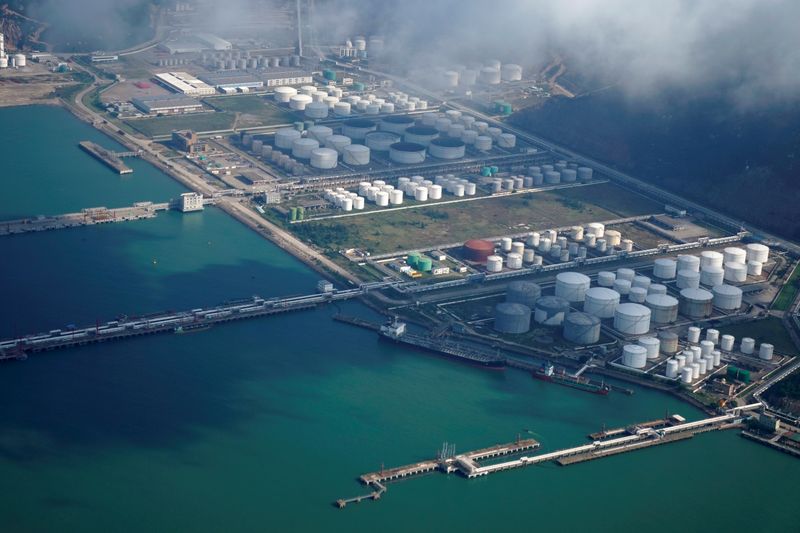By Marianna Parraga and Mayela Armas
HOUSTON/CARACAS (Reuters) – A reimposition of U.S. sanctions on Venezuela’s oil and gas sectors would hurt the OPEC country’s ability to collect cash from its oil exports, crimp new energy investments and raise the risks of domestic fuel scarcity, analysts and executives said.
Washington this week ordered a wind down of all business transactions between U.S entities and Venezuela’s state miner Minerven, and said it would unwind in April its easing of energy sanctions if President Nicolas Maduro’s administration does not stick to an agreement signed last year to accept conditions for a fair presidential election.
The U.S. is increasing its pressure since the South American country’s top court last week upheld a ban blocking the leading opposition hopeful, Maria Corina Machado, from the election.
The U.S., which first imposed oil sanctions on Venezuela in 2019, had granted sanctions relief for the OPEC member country in October in recognition of the election deal.
As a result of easing sanctions, Venezuela was expected to grow its total oil revenue to as much as $20 billion this year from some $12 billion in 2023, according to Caracas-based consultancy Ecoanalitica. Larger exports of crude and petrochemicals to cash-paying customers in countries from the U.S. to India were behind its forecast.
“Price discounts on Venezuela’s crude had reduced a lot and cashing sales proceeds became easier for state company PDVSA. That was helping Maduro,” said Francisco Monaldi, director of the Latin American Energy Program at Rice University’s Baker Institute.
“If the license is withdrawn in April, the proceeds will be reduced again and the scenarios of strong economic growth and a competitive election will fade,” he added.
Risks of a new bout of acute fuel scarcity also are poised to increase, experts said.
Even if Washington continues authorizations for debt repayment deals to Chevron (NYSE:), Eni, Repsol (OTC:) and Maurel & Prom to avoid a total break with Venezuela, that might not provide sustainable investment to expand output.
“Specific licenses to one or two companies are not going to be very beneficial as a return of investment to Venezuela,” said Ali Moshiri, CEO of Amos Global Energy, which has interests in the South American country.
“That is not really going to move the needle for Venezuela’s oil sector to increase production significantly,” he added.
LOST EFFORT?
The U.S. sanction easing, which began in November 2022 with a special license to Chevron, marked a big change for the South American country’s coffers.
PDVSA since 2019 had been forced to switch most of its oil trading to swaps and funnel sales through intermediaries because customers did not want to be exposed to sanctions.
Oil exports by PDVSA and its joint venture partners rose almost 13% to an average 700,000 barrels per day (bpd) last year, tanker tracking data showed, while the country’s crude output grew 9% to 783,000 bpd. The company reestablished relationships with some of its former key clients.
The relaxation increased oil revenue, boosting Venezuela’s gross domestic product by 5% in 2023. It also paved the way for Venezuela to plan for an expansion of public spending for the first time in years to woo voters.
Venezuela’s oil minister Pedro Tellechea on Tuesday said the country was prepared to counter a return of sanctions and warned that the U.S. could also suffer from fewer Venezuelan oil exports.
But his message did little to calm companies that were planning purchases of Venezuelan oil and partnerships for energy projects in Venezuela, according to sources.
Read the full article here





